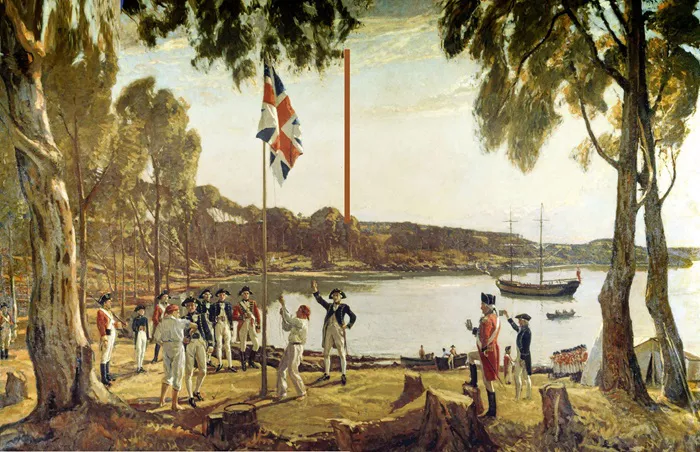Throughout British history, February 16 has been a significant day, marked by political upheavals, royal events, and important societal changes. From acts of parliament to the birth of influential figures, the date holds a range of moments that have shaped the course of history. This article explores key events that took place on this date, highlighting their impact on British society, politics, and culture.
What Happened on February 16 in British History?
1. 1771: The Birth of the English Romantic Poet Thomas Campbell
One of the most notable events on February 16, 1771, was the birth of Thomas Campbell, a Scottish poet and an influential figure in the Romantic movement. Campbell is best known for his poems “The Pleasures of Hope” and “Lochiel’s Warning.” His works often explore themes of patriotism, liberty, and human suffering, which resonated deeply with the public in the turbulent times of his life.
Campbell’s legacy is marked by his ability to blend personal sentiment with a broader social consciousness, making him a key figure in Romantic poetry. Although Campbell’s influence waned somewhat in the 19th century, his early works laid the foundation for future poets and thinkers.
2. 1884: The Birth of Edward VIII, the King Who Abandoned the Throne
On February 16, 1884, Edward VIII was born, who would later become one of the most controversial figures in British history. His abdication in 1936 caused a constitutional crisis. Edward VIII’s decision to marry Wallis Simpson, an American divorcée, was the cause of his abdication. At the time, the British monarchy’s position on marriage and divorce was strict, and his love for Simpson, which defied tradition, led to his unprecedented decision to leave the throne.
Edward VIII’s abdication paved the way for his younger brother, George VI, to ascend the throne. This event had lasting implications, not just for the royal family, but for the British public’s relationship with the monarchy and its role in the modern world.
3. 1919: The First Major Strike in the UK Following World War I
In 1919, the British labour movement faced one of its greatest challenges when workers in various industries began to strike for better conditions and wages. February 16 saw the beginning of what would become known as the “Great Strike of 1919.” The strikers were largely motivated by economic hardship following the end of World War I. The cost of living had risen significantly, and workers sought improvements in their working conditions and wages.
The strike, which involved a broad range of industries including coal mining, textiles, and manufacturing, represented a significant moment in the history of British labour. It demonstrated the growing power of the working class, who were increasingly organized and assertive in their demands. While the strike did not immediately result in the changes the workers sought, it set the stage for future labour movements in the 20th century.
4. 1946: The Establishment of the National Health Service (NHS)
One of the most transformative moments in British history occurred on February 16, 1946, when the British government passed a series of measures that would lead to the establishment of the National Health Service (NHS). The NHS was officially founded in 1948, but the groundwork for the service was laid in the years immediately following World War II. The Labour government, under Prime Minister Clement Attlee, pushed for the creation of a universal health service that would be funded by taxation and available to all citizens regardless of their financial status.
The NHS became a hallmark of British social policy, offering free healthcare to all and serving as a model for other nations. On this day in 1946, discussions were underway that would lead to the creation of this vital institution, which would go on to transform public health in Britain and become a cornerstone of British society.
5. 1962: The Beatles Release Their First Major Hit, “Love Me Do”
Although not as politically significant as some of the other events listed here, February 16, 1962, marks the release of the Beatles’ first major hit, “Love Me Do.” This moment marked the beginning of the Beatles’ meteoric rise to fame and had a profound influence on British and global pop culture.
“Love Me Do” was the Beatles’ first single, and it resonated with the public’s growing appetite for new music. The Beatles would go on to revolutionize the music industry and change the cultural landscape of Britain and the world. Their influence on music, fashion, and social trends was immense, and February 16, 1962, represents the early days of what would become one of the most iconic musical acts in history.
Conclusion
February 16 in British history is filled with moments of social, cultural, and political significance. From the birth of important figures like Thomas Campbell and Edward VIII to key events in the development of modern institutions like the NHS, this date has seen a range of pivotal changes that have shaped the nation. Whether in the realms of art, politics, or popular culture, February 16 holds a lasting legacy in the annals of British history.
This overview provides a glimpse into the richness of British history on this date. Each of these events, in its own way, reflects the broader trends of the time, from the rise of Romanticism to the challenges faced by workers in the early 20th century, and the societal shifts that accompanied the creation of the NHS. These moments, large and small, contribute to the unique tapestry of British history, making February 16 a noteworthy day to reflect upon.
Related Topics:

